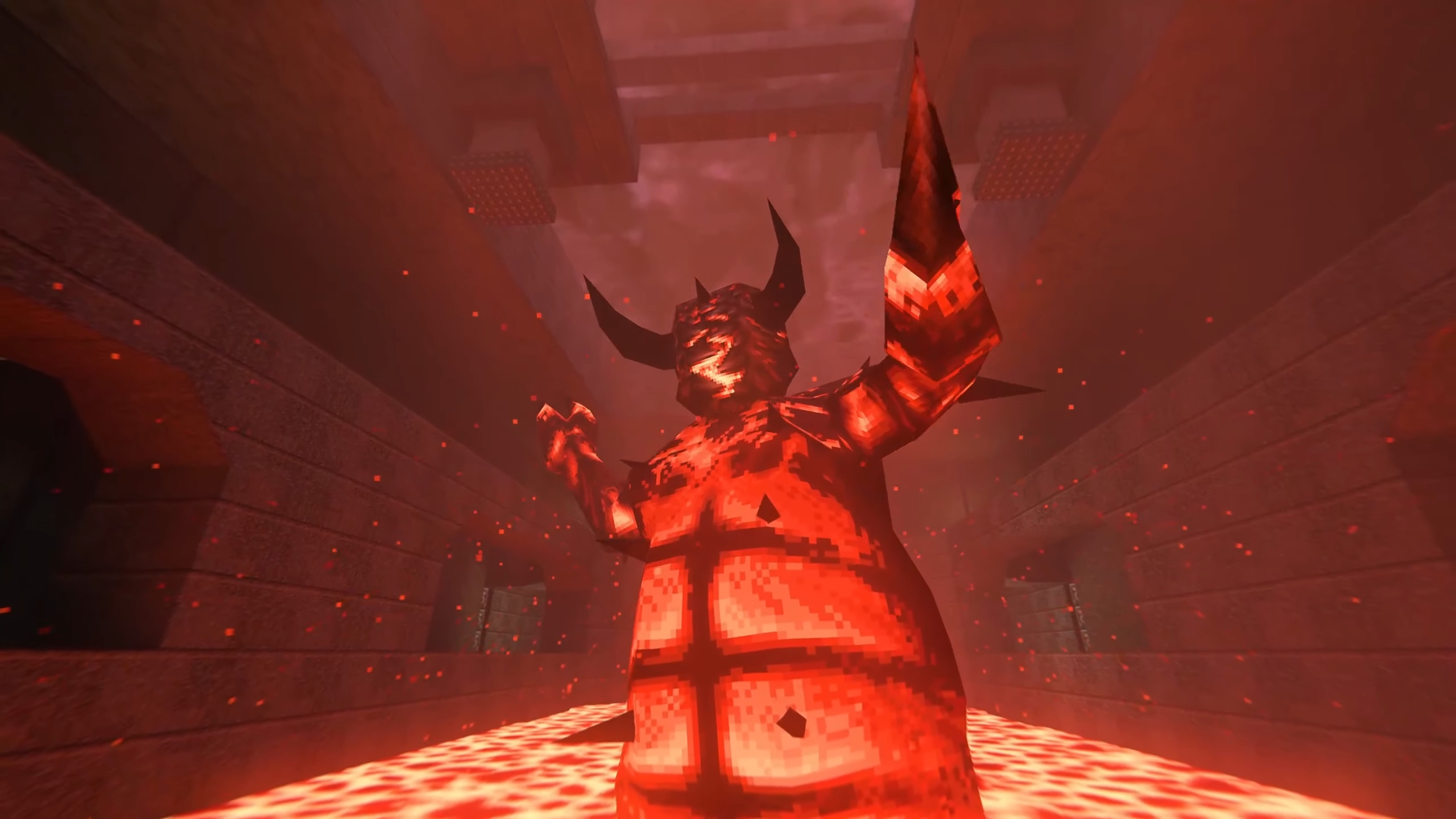Here’s ray-traced Quake 1, because why not at this point

The original Quake has gotten a fascinating makeover, as a new mod adds full ray tracing to the classic FPS. The free mod, which works with the Steam version of Quake or your version from 1996—probably—switches out all that old Quake lighting for newly ray-traced lights.
Y’all ever find out that someone has undertaken a quest you’d expect is time-intensive and absorbing… and just done it in no time at all? That’s how I feel about sultim_t (opens in new tab), the modder behind this ray-traced Quake project. This year I’ve already repored on how sultim_t brought ray tracing to classic Doom (opens in new tab) and Half-Life 1 (opens in new tab), and now Quake 1 as well.
In many ways this one’s fascinating compared to the others just because Quake did so much with its original lighting settings. It was a deliberately dark and spooky game, and the new ray traced environments can seem a bit clinical, even colorless, under the new lighting scheme.
If you’d like to fix that weirdness, YouTube user Mithe posted (opens in new tab) a way to avoid those colors: “HEY just so you know I highly recommend setting rt_sky to 1 in the console commands to eliminate the overly bright and washed out outdoors areas. For some reason its set to 9 by default. Also, you can enable sun shadows using “rt_sun 1” though I recommend setting volumetrics to simple if you do. “rt_bloom_intensity 0” to disable bloom, or 0.5 to reduce the intensity. Finally, you can enable a flashlight using rt_flashlight if you want.
If you’d like a very deep dive into how it looks, check out this video (opens in new tab), which dives really far into how to tweak the settings and get ideal results.
Watching Quake 1 get ray traced feels like coming full circle with ray tracing as a technology. That’s because many people’s—myself included—first encounter with the tech was that stunning demo of Quake 2 (opens in new tab) using ray tracing. That led to Quake 2 RTX, the first project to really try and understand what it takes to make ray tracing work in games.
You can find Quake 1: Ray Traced on github (opens in new tab), along with instructions on how to get it running.
Source link




